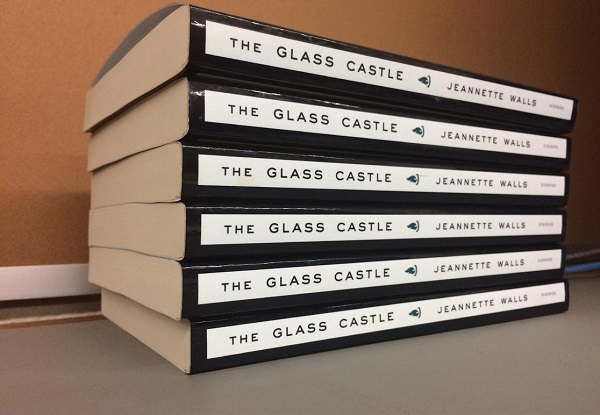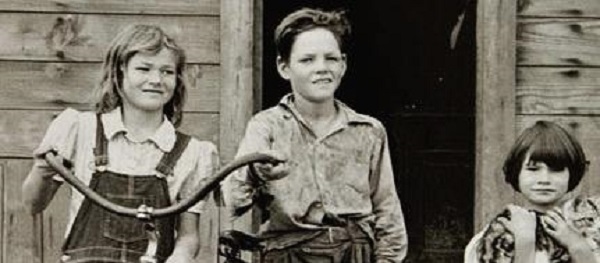
By Yaasmeen Piper
A&E Editor
One bus ticket to New York City changed the fate of the Walls siblings.
Sociology professor Dr. Marianne Cutler stated “Glass Castle” author Jeannette Walls could have had an extremely different turn out if she had not done something as simple as baby sitting.
“[Walls] had this person outside of her family, outside of her immediate framework, that is basically responsible for relocating her sister to New York,” said Cutler.
Walls was offered a chance to spend a summer in Iowa a babysit for a wealthy family. Instead, she sent her older sister Lori and told the family to pay her with a one way bus ticket to New York.
“Once her sister is relocated to New York, she uses her drive, her own efforts to establish herself and find a place to live, find work, etc. She’s then able to bring Jeanette to New York and that makes all the difference in the world.”
A plethora of students joined Cutler and the One Book One Campus committee in Beers Lecture Hall last Wednesday evening.
The discussion danced from examples of poverty, what factors play into poverty, and societies reactions.
For weeks and even months at a time, the Walls family went without heat, or air conditioning, or electricity just to scrape by. Often, school lunches were the children’s only meals and even those were not promised.
“When other girls came in and threw away their lunch bags in garage pails, I’d go retrieve them,” Walls wrote. “I couldn’t get over the way kids tossed out all this perfectly good food: apple, hard-boiled eggs, packages of peanut-butter crackers… I’d return to the stall and polish off my tasty finds”
“I’m a living, breathing example of upward social mobility,” Cutler said.
Neither of her parents had gone to college, nor did they have a job where they got to manage other people.
“We just had sort of middle class standard stuff. But here I am now in a different place. And college is sort of how you get there. Isn’t that why you’re all here?” she said.
As an example, Cutler showed a short documentary called “Tammy’s Story.” The video showed a small, rural family living in South Eastern Ohio.
The mother, Tammy Heid, trudged nearly 11 miles from her trailer park home to her job at Burger King.
The focus of the documentary was on her eldest son Matt. Out of the entire Heid family, including the youngest Bo, Matt was the only to speak about his future and hopes to become something better.
“I want to go to college,” Matt said. “Somewhere around here I can get a little college going on ‘cause I know I ain’t no Harvard material or anything like that.”
Matt had a tub filled with school awards, presidential awards and honors. He even talked about his plans for college, however, those plans went from a four year school down to a two year.
“[Matt] is living a cautionary tale,” Cutler said. “He knows that is he does not follow through he will end up living just like mother. It’s very clear that that is not where he wants to end up.”
The film makers went back 14 years later to see where the Heid’s ended up.
Despite his determination, Matt did not make it to college. In fact, with only six months left he dropped out of high school to after his girlfriend had their daughter.

The Glass Castle is this semester’s One Book, One Campus novel.
“When you’re young you’re immature,” Matt said. “As you get older you realize what you can do and what you can’t do.
The Heid’s story is more common in our society.
“Far fewer people change actually change class over the course of their lifetimes than we sort of expect,” Cutler said, “based on this idea that if anyone has the drive, worked hard enough and is willing to work hard enough, they can pick themselves up and get ahead no matter what circumstances are around us.”
According to Cutler, sociologist attribute three different “Capitals” to helping people move up in society. Physical Capital being money, property, or other objects that generate wealth, Human Capital, your individual intelligence and skills and finally Social Capital, who you know and people you can network with.
“The one thing that Jeannette had that was not seen [in Tammy’s story] is a little more Social Capital,” Cutler said.
The family Walls baby sat for become a part of her Social Capital and landed her sister Lori with the bus ticket that changed the route of their story.
“Many people have ambition and motivation, but lack the tools for success,” said English major and Psychology minor Richard MacTough. “It’s a normailized idea in society, if you work hard enough you will prosper. It’s not true.”
Cutler made the audience reflect on their own journey into college.
“It probably wasn’t just your own drive although I’m sure you’re drive is strong. For many of you there was someone else,” she said.
“Whether a counselor, a teacher, or coach, who got you connected to someone else. And that makes all the difference in the world.”
Email Yaasmeen at:
ypiper@live.esu.edu

